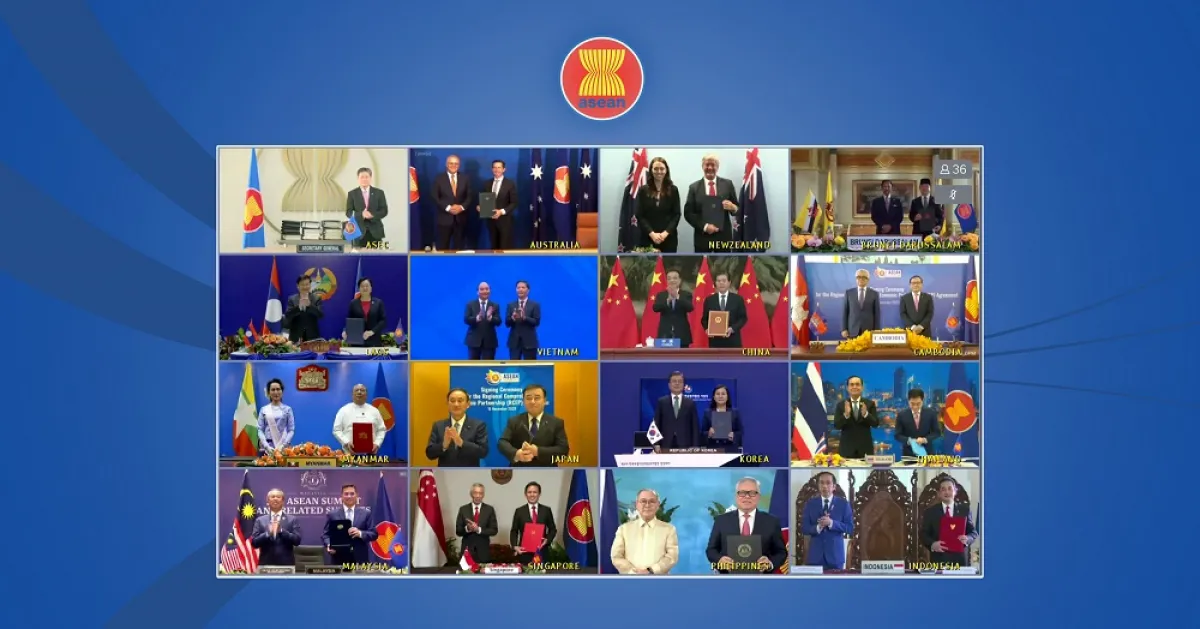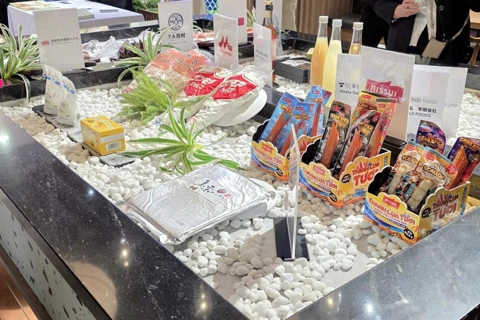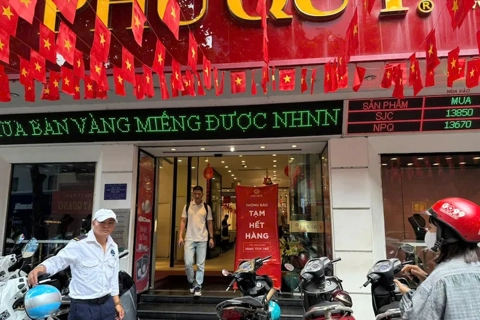RCEP set to enter into force on January 1 2022
The implementation of the RCEP Agreement starting January 1 next year will give a tremendous boost to the post-Covid-19 economic recovery efforts.
As of 2 November 2021, the ASEAN Secretariat has received Instruments of Ratification/Acceptance (IOR/A) from six ASEAN Member States including Brunei, Cambodia, Laos, Singapore, Thailand, and Vietnam; as well as from four non-ASEAN signatory States which are Australia, China, Japan, and New Zealand.
| RCEP signing ceremony in November 2020. Source: ASEAN Secretariat |
As provided by the Agreement, the RCEP will enter into force 60 days after the date at which the minimum number of IOR/A is achieved. This means that the RCEP Agreement shall enter into force on 1 January 2022.
“The expeditious ratification process by signatory States is a true reflection of our strong commitment to a fair and open multilateral trading system for the benefit of the people in the region and the world. The implementation of the RCEP Agreement starting January 1 next year will give a tremendous boost to the post-Covid-19 economic recovery efforts,” the Secretary-General of ASEAN Dato Lim Jock Hoi said in a statement.
Meanwhile, the ASEAN Secretariat said the preparatory work for the entry into force of RCEP will continue.
“The preparatory work undertaken by signatory States aims to lay a solid ground for the full and effective implementation of the Agreement through finalization of the technical and institutional aspects of the Agreement,” it added.
New Zealand on November 2 became the latest country to ratify the RCEP. The country’s Minister of State for Trade and Export Growth Phil Twyford said the deal would bring huge economic benefits and greater market access for New Zealand’s businesses.
“New Zealand’s ratification yesterday, alongside Australia, triggered the entry into force of what will become the world’s largest free trade agreement and further accelerate our Covid economic recovery,” said Phil Twyford.
The RCEP, seen as a mega trade deal and signed in November 2020 after eight years of negotiation, would form a market of 2.2 billion people, or almost 30% of the world's population, with a combined GDP of US$26.2 trillion or about 30% of global GDP, accounting for nearly 28% of global trade (based on 2019 figures).
Deputy Minister of Industry and Trade Tran Quoc Khanh noted the RCEP is one of Vietnam’s major achievements when the country was serving as the Chair of ASEAN in 2020. “Vietnam had been working alongside ASEAN members to address shortcomings for the conclusion of negotiation and subsequent signing of the deal on the sideline of the ASEAN 37th Summit last November,” Khanh noted. |













